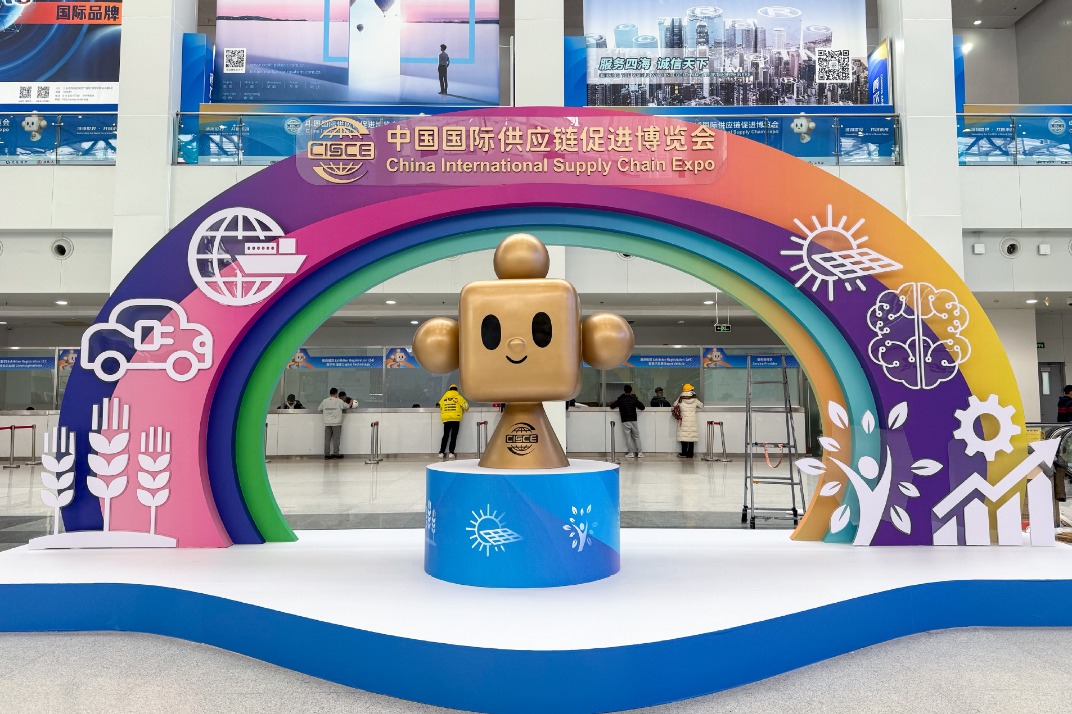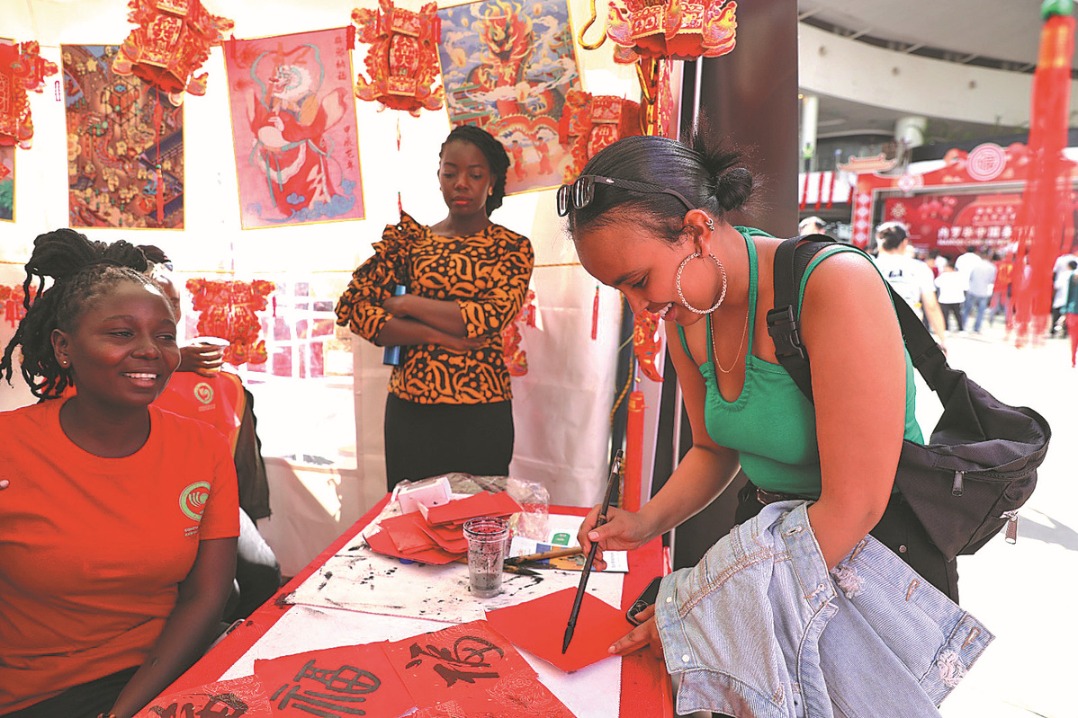Safe and sound
China and ASEAN should step up their cooperation on non-traditional security challenges to bolster mutual trust


Since 2021, the successive roll-out of the three Chinese global initiatives, namely the Global Development Initiative, Global Security Initiative and Global Civilization Initiative, has been upending the normative myth espoused by the West on initiatives of sustainable development and security concerns alongside cross-civilization interaction. The seemingly independent dimensions of global governance are now increasingly proven to be mutually reinforcing and interconnected by the unfolding global dynamics, particularly in the lively Asia-Pacific region.
For a long time, the international community has been made to believe that Westernization is the only template for modernization and development can only be achieved at the expense of environmental degradation. Alongside this, nation states could only be assured of security by means of military alliances and the architecture of military deterrence spearheaded by the West; while civilizational clashes are said to be foreordained in a world of diverse cultures. Coexistence is not at all prioritized.
These predatory myths serving the interests of the collective West have been propagating as the gospel truth worldwide under the Pax-Americana, more so across the Global South which comprises countries that were once colonies of the West.
The emergence of the Association of Southeast Asian Nations as a regional grouping at the height of Cold War was earlier dismissed as a motley group of new emerging economies from the perspective of the collective West. Despite the West's proclaimed obligation of providing a security shield in Southeast Asia during the Cold War years of ideological confrontation, ASEAN being the regional grouping encapsulating the Southeast Asian countries has consistently been treading the tight rope of geopolitical rift with great circumspection. This was evidenced by the roll-out of the Declaration on Zone of Peace, Freedom and Neutrality in 1971.The signatory parties, comprising then foreign ministers of the ASEAN member states or their representatives publicly stated their intent to keep Southeast Asia "free from any form or manner of interference by outside powers", in addition to broadening "the areas of cooperation which would contribute to their strength, solidarity and closer relationship". It stood as a bold and defiant move against the prevailing tide of rallying behind the US-led West when the specter of a "domino effect" was riding high across the region.
Today, with the maturing of China-ASEAN relations and partnership, notably in economic cooperation, security concerns remain one of the few areas yet to be addressed concertedly. In this context, there has been a prevalent myth claiming that it is wise for ASEAN to straddle in the geopolitical contest between China and the US by betting on Washington for providing the security shield, while economically, ASEAN has to embrace Beijing.
This is a myopic choice constrained by a zero-sum mentality. Obviously when ASEAN embarked on the China-initiated Belt and Road Initiative, it didn't mean the bloc has since been drawn into the orbit of Chinese neighborhood diplomacy at the expense of others. In the same vein, now that China and ASEAN are each other's top trading partner, it's conceivable that the existing multidimensional and multilateral cooperation may spill over to the security dimension. Again, such collaboration is not meant to target others. Instead, it can yield "positive sum" outcomes if those concerned are able to look beyond the narrow interpretation of "security cooperation".After all, security is not synonymous with fostering military pacts between the so-called like-minded countries with a specific third party in their crosshairs. Much less in deploying troops and military installations on foreign soil of sovereignty.
In reality, we are not short of exigencies and insecurities that warrant security cooperation, notably between ASEAN and China. Nontraditional security concerns, ranging from climate change, food and energy security to transborder terrorism and human trafficking appear more pressing than any others.
While exploring security cooperation to address these non-traditional security challenges, the existing disputes on overlapping territorial claims over parts of the South China Sea between China and a few claimant states from ASEAN remain a challenge to the enduring China-ASEAN neighborly partnership. In the collective effort to nurture the prevailing China-ASEAN partnership in the interest of good neighborliness, more emphasis should be attached to the building of mutual trust and confidence. The dividends of common prosperity and the desire for coexistence accrued from inclusive economic development across the region act as a good security stabilizer to keep the volatility of security dynamics in check. Plainly put, prosperity and peace which bring about the desired security further reinforce the conducive environment for development.
ASEAN, as a regional bloc dedicated to promoting economic cooperation and regional peace, has its collective aspirations and concerns to prioritize. Under the prevailing non-interference principle, all member states share the understanding that domestic issues should be solved on their own without any outside intervention, and that each member state should have sufficient state strength to handle these issues.
In the prevailing face-off between China and the Philippines, external powers are visibly involved and the target is none other than China. Any misjudgment or mishandling of the military stand-off on the high seas would invariably flare up into conflict, leaving the regional peace and partnership in tatters.
The external powers, notably the United States and its allies, are not stakeholders involved in the disputes, thus having no locus standi to meddle in them. The saber-rattling of their warships in the disputed areas in the name of upholding "freedom of navigation "is absolutely unnecessary, unconstructive and provocative in nature, as "freedom of navigation" has never been an issue in the South China Sea for civilian vessels for ages. It's an overstatement to say that the overlapping territorial claims have thrown the freedom of navigation in the South China Sea into jeopardy. The self-proclaimed role of Washington in policing the Southeast Asian waters merely provides opportunities and justifications for the US fleet of naval warships to flex their military muscles on the doorstep of China. This only serves to up the ante in the inconclusive disputes, rendering them more intractable.
It's not a secret that the entire US-led security architecture in the Asia-Pacific region is part of its "Indo-Pacific" strategy targeting China, albeit on the pretext of serving the interests of "Indo-Pacific "security.
The US-led alliances such as the Quadrilateral dialogue (among the US, India, Japan and Australia) and AUKUS (a security pact among Australia, the United Kingdom and the US), fostered in the name of common defense interests, are conspicuously blatant moves in defiance of ASEAN security. After all, Washington's underlying goal lies in upholding its faltering global primacy and hegemony in the region, even if it has to be done at the expense of regional stability.
On the issue of managing disputes, inclusive engagement through dialogues and negotiations is the only viable option, but it must strictly be confined to the stakeholders.
Noting that all along ASEAN has never been a military bloc, and China not a conventional security provider from the global perspective, if all the ideals of the Global Security Initiative were to be translated into action in the Southeast Asian context, perhaps the low-hanging fruits lie in the arising non-conventional security concerns such as insecurities posed by climate change, food and energy crises.

The author is president of the Belt and Road Initiative Caucus for Asia Pacific. The author contributed this article to China Watch, a think tank powered by China Daily. The views don't necessarily reflect those of China Daily.
Contact the editor at [email protected].


































